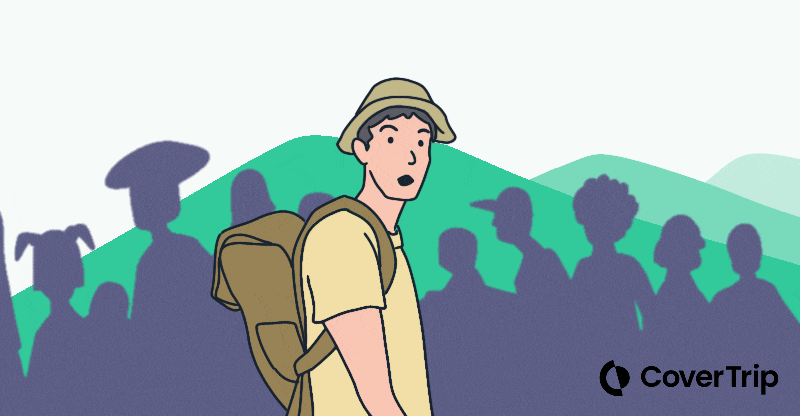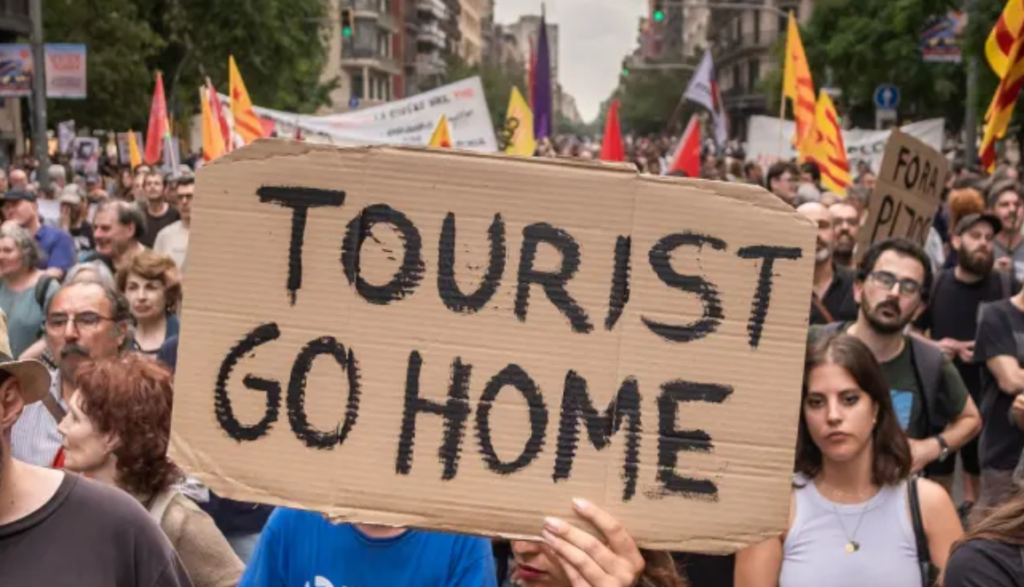How mindful travelers can make a difference with overtourism
23 August 2024
In addition to navigating strikes, travelers this summer have had to be cautious of mass tourism protests in many countries. Waving signs reading ‘Tourists Go Home!” and squirting tourists with water guns, local Spaniards took the streets in protest of mass tourism they say is wrecking their lifestyle and their city.
The most recent backlash extends far beyond Barcelona, however. European cities hosted over 700 million international visitors last year, straining city resources and public transportation systems and making it impossible to get into favorite restaurants, cafés, and bars.
In some cities, the popularity of buying income properties to rent as vacation homes has created housing shortages and driven up rental prices, forcing long-term residents to leave. Employee shortages caused by unreasonably high property prices only exacerbate the situation, leaving local businesses without the workers they need to support locals and tourists.
Stir in high summer heat and some filthy pollution, and the patience of locals has simply ended!
Here’s how mindful travelers can be part of the solution—but first, let’s look at how we got here.

How did we get here?
Overtourism presents a frustrating experience for both sides – locals and visitors. For tourists, it can seem like being in the wrong place at the wrong time, but it’s really not fair for any group involved.
So how did we get here?
While officials didn’t plan on unchecked growth and a meteoric rise in tourism, it started with plans to improve the local economy, infrastructure, and the ability to support historic sites.
Then came a global pandemic, and all travel stopped. Businesses failed while would-be travelers wallowed in cabin fever. Local residents got a taste of having their neighborhoods to themselves again, but at a price, as governments racked up debt to compensate for the disappearance of tourist income.
More recently, with COVID in check or at least under control, travelers with cash they stashed while waiting began to vacation with a vengeance, and the rates of travel really haven’t slowed since.

What are countries doing about overtourism?
Various countries are implementing their own set of tactics:
- Some destinations, such as Machu Picchu, limit the number of visitors and the time they can stay. Others are restricting open times and requiring pre-booking.
- Some locations, such as Venice, Italy, are introducing and/or increasing tourist taxes to help support the local infrastructure.
- Some cities, like Amsterdam, are banning the construction of new hotels entirely.
- Some cities, like Copenhagen, are getting creative and putting visitors to work! Tourists who pick up litter or perform other eco-friendly activities can earn free food and special cultural experiences.
- Bend, Oregon recently added a tourist tax that goes to building local infrastructure like bike lanes.
Some are implementing all the strategies at once!
What can you do about overtourism?
If you’ve ever lived at a destination that gets mobbed by outsiders for even part of the year, you’re familiar with the locals’ struggle. So, how can you be a better tourist and help beat overtourism?
Find out if the place you want to visit will be overcrowded
Even the places that are experiencing overtourism don’t have problems year-round. Do some research and find out if the location you plan to see is overcrowded with tourists and when.
This does two things for you:
- You’ll know ahead of time what to expect, and
- You can reconsider your timing and go at a less busy time.
If you can travel at a time when there are likely to be fewer tourists, you’ll have a better time, and so will the locals.
Expect to plan ahead and make reservations
At first, planning to visit a national park and making a reservation was annoying. Now it’s normal, and the result is a better, less stressed experience for everyone.
When you’re planning a trip to a destination that occasionally or often experiences overtourism, making reservations for everything will help you have a better experience. The locals will appreciate the advanced notice too.
Learn the local etiquette
Many city folks were first introduced to the joy of the outdoors during the pandemic. Unfortunately, many didn’t know outdoor etiquette like picking up your pet’s poo on trails, tramping off marked trails, playing loud music while hiking, and more.
Whatever your travel plans, take the time to learn and follow the local etiquette. For example, if the typical dinner time in Spain is 9-11, adapt to that; if locals walk everywhere rather than drive, walk everywhere.
Attend local events and go to local businesses
Do as the locals do. Hire local guides, dine at locally owned restaurants, and shop at local stores. Be polite and try to fit in as seamlessly as you can. Many locals’ livelihoods depend on tourism, so avoid all big-box stores or chain restaurants in favor of eating and shopping at resident-owned places.
Related topics
Damian Tysdal is the founder of CoverTrip, and is a licensed agent for travel insurance (MA 1883287). He believes travel insurance should be easier to understand, and started the first travel insurance blog in 2006.
